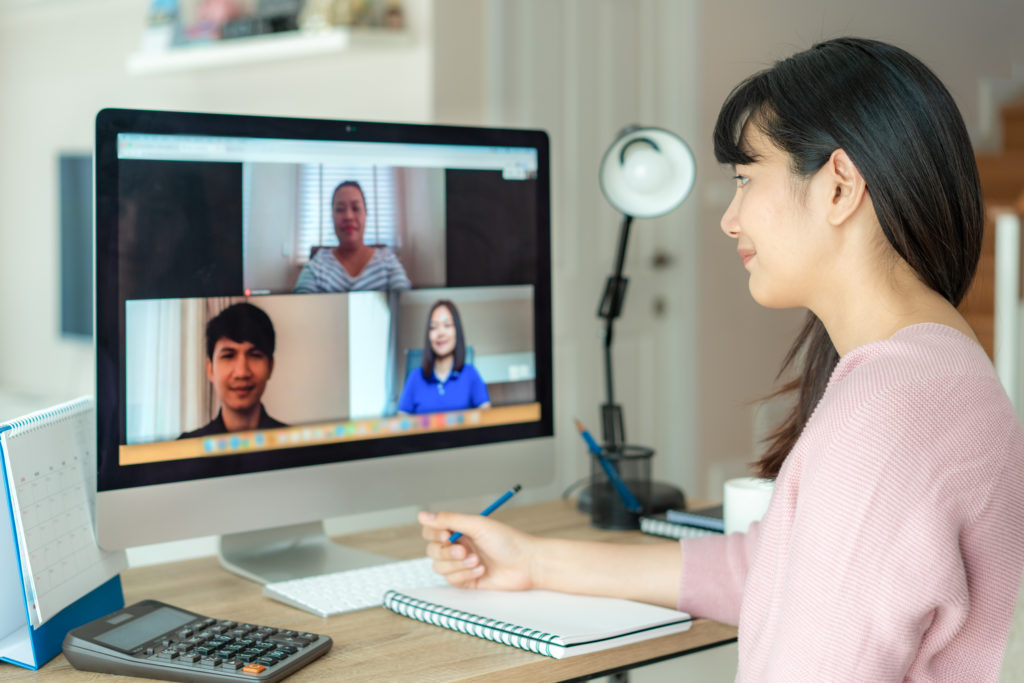Working from home, or working remotely, has become almost universally accepted as a method that works. Of course, some careers and jobs aren’t suited for it and for others it is obviously just not possible. But, for many of us, and for many organisations, the deliverables of remote working are working and post-pandemic, it is hard to see things going back to a full time office environment for firms who may not have employed remote working before this situation.
Statistically speaking, research indicates that companies worldwide have witnessed an 85-percent boost in efficiency through flexible working. But even so, a lot of people still struggle to take that leap of faith and settle for a flexible work schedule. This can be particularly an issue for managers, who have had to ensure their teams remain focused and accountable. So why does remote working work for so many people, both in terms of how they do their work and how they live their lives.
You adapt better
Working remotely for a longer time will make you more adaptable and ready to respond. Having a flexible schedule also means enjoying a greater work dynamic and broadening your knowledge and experience and how you can predict what challenges you may encounter. The result? You will boost both your problem-solving skills and your ability to be one step ahead of any issues that you may encounter as you have begun to think differently in terms of how you solve problems.
It is good for business
If you are an employee, being dynamic and flexible will let your employer know you are serious and reliable when push comes to shove and the deadlines are looming. The truth is, working under direct micromanagement pressure is bad for morale and confidence, which ultimately means it is bad for business. The key thing about remote work is that the more reliable you are, the more latitude you will get in terms of how, when and where you deliver your work. IT challenges are with us whether we work in the office or remotely, but while many companies turned to ad hoc or quick fix solutions to stay active during the Covid-19 onset, it is likely that there will be significant rollout of remote working IT security platforms as a matter of priority in the short to medium term
Reduced costs
As most workers will tell you, remote working means you are saving money instead of spending it. By eliminating the commute daily, eating out for lunch or buying lunch for the office, and having meetings around town, most people will tell you that they notice a significant savings month on month. For employers it can mean eliminating rent costs eventually, which can be a crippling cost. Then there are the associated overheads of running an office. With the economic contraction set to be severe and sharp, any cost saving is a smart saving.
A productivity boost
One of the greatest benefits of working remotely is the surge of productivity that teams can produce. The vast majority of workers are diligent and responsible and know the requirement to keep in touch, deliver your work and not let your team or your employer down. When you work alone, you have higher focus and determination and you are more motivated to get things done without the distractions of the office environment. At the end of the day, the more flexible and therefore productive you are, the more doors you’ll open for yourself.
You get to be creative
Flexibility is an amazing trigger for developing creativity. In other words, when working from home, you get to play with different ideas, thus facilitating and improving your work performance. Soon enough, you will begin to develop original concepts and discover new ways to enhance your skills. Enthusiastic people working under a flexible work schedule approach their tasks more creatively and can come up with solutions faster than individuals working from an office.
Less stress
If none of the other benefits ring true for you, this one will. One of the greatest advantages of working remotely is far less exposure to stress or anxiety. It might sound simple, but working flexible hours can really bring you peace of mind. Those who work remotely are less likely to suffer from insomnia, not dreading the commute or long day in the office under controlled conditions. Stress is a modern-day disease, it impacts on every aspect of someone’s life. By working remotely, you are in control of your own en
So near and yet so far
Despite being so far apart physically, many workers say that the style of work brought on by the pandemic has fostered harmony and unity within the team and also a warmth to conversations. Daniel Stillman, author, Good Talk: How to Design Conversations That Matter, says that remote working is strangely intimate because we’re peering into the homes of our colleagues and getting a glimpse into their personal lives. If we are to return to the office full time, he is hopeful that we can retain some of the empathy and connections that we have forged in this time. “Many people hadn’t planned to be in this situation, so we’re meeting their pets and their kids, too. But we’ve also been given an opportunity. Our default tools and default ways of meeting don’t work as well virtually. Working remotely asks us to be more intentional in how we talk and collaborate — in this way, we’re better able to design the experience in ways we weren’t able to before. I hope people will learn to bring some of these insights back into how we communicate ‘in real life’ . . . once we can do that again. My hope is also that we learn that we don’t have to get on a plane and get into the same physical room in order to have an impactful, human conversation,” he said in an article in Forbes magazine.











Comments